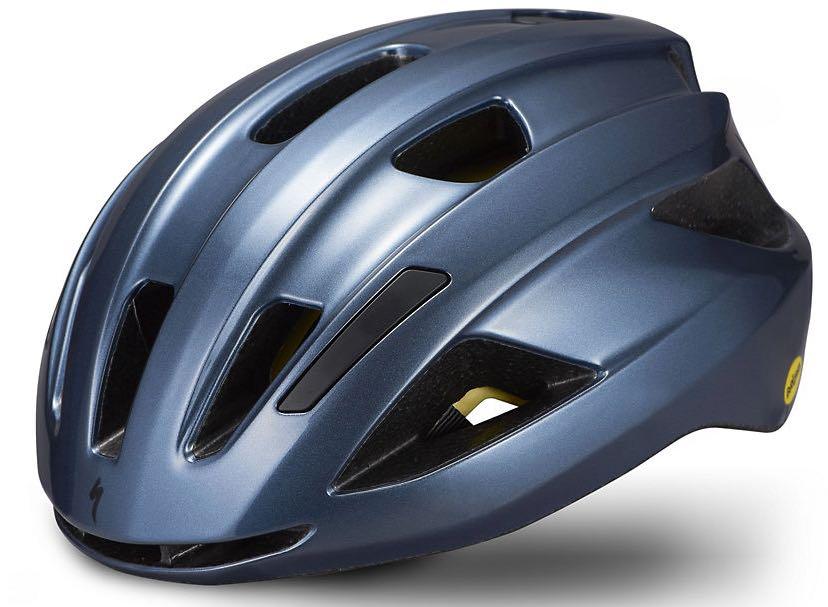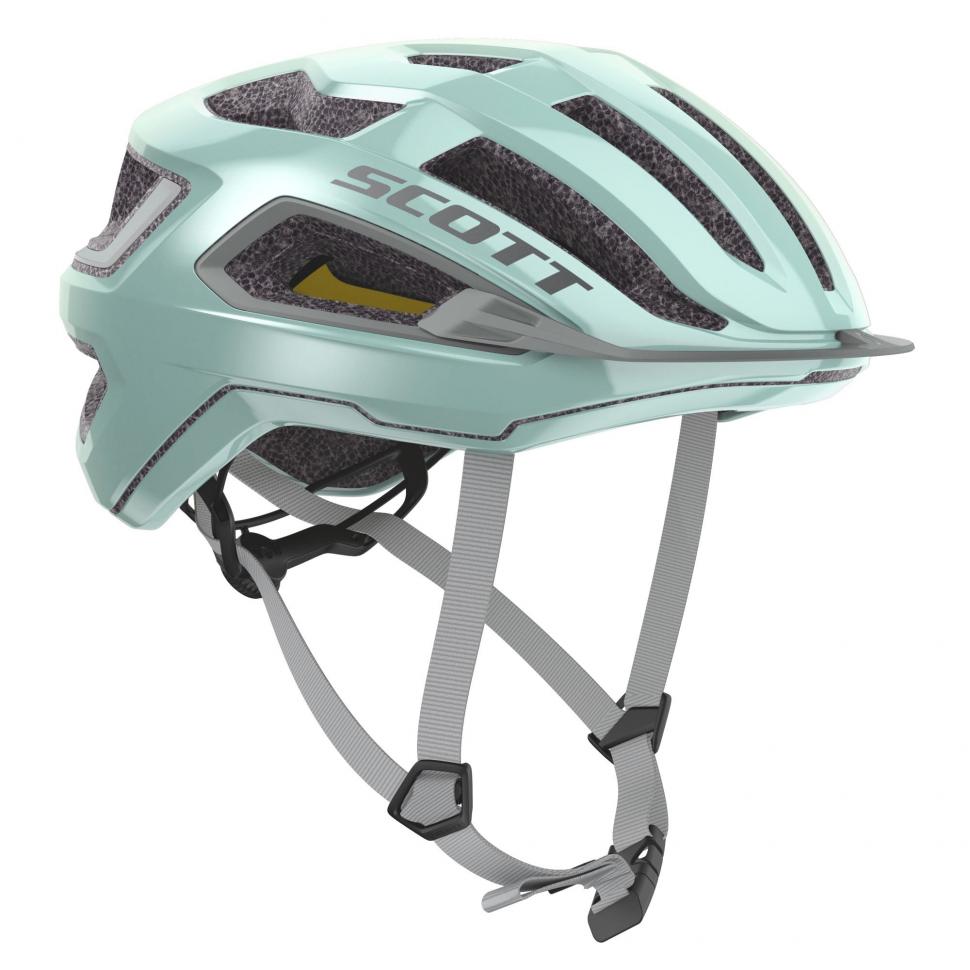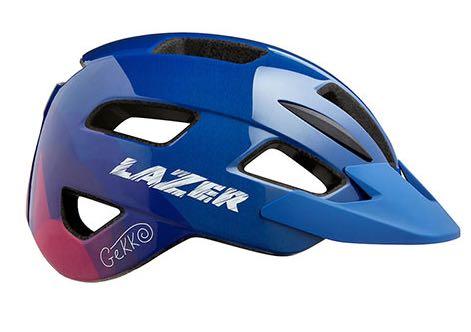- News
- Reviews
- Bikes
- Accessories
- Accessories - misc
- Computer mounts
- Bags
- Bar ends
- Bike bags & cases
- Bottle cages
- Bottles
- Cameras
- Car racks
- Child seats
- Computers
- Glasses
- GPS units
- Helmets
- Lights - front
- Lights - rear
- Lights - sets
- Locks
- Mirrors
- Mudguards
- Racks
- Pumps & CO2 inflators
- Puncture kits
- Reflectives
- Smart watches
- Stands and racks
- Trailers
- Clothing
- Components
- Bar tape & grips
- Bottom brackets
- Brake & gear cables
- Brake & STI levers
- Brake pads & spares
- Brakes
- Cassettes & freewheels
- Chains
- Chainsets & chainrings
- Derailleurs - front
- Derailleurs - rear
- Forks
- Gear levers & shifters
- Groupsets
- Handlebars & extensions
- Headsets
- Hubs
- Inner tubes
- Pedals
- Quick releases & skewers
- Saddles
- Seatposts
- Stems
- Wheels
- Tyres
- Health, fitness and nutrition
- Tools and workshop
- Miscellaneous
- Tubeless valves
- Buyers Guides
- Features
- Forum
- Recommends
- Podcast
TECH NEWS
 2021 Specialized Align II MIPS helmet.jpeg
2021 Specialized Align II MIPS helmet.jpegSwedish safety research recommends three helmets out of 23 tested
A test of 15 cycle helmets for adults and eight children's helmets available to the UK market has resulted in recommendations for three of them for safety. All three incorporate technology designed for protection against rotational forces.
The Road Safety Trust, a body that’s “dedicated to achieving zero deaths and serious injuries on UK roads”, funded the Folksam Insurance Group in Sweden to complete extended safety tests on a selection of helmets available in this country.
Five physical tests were performed by the Research Institutes of Sweden (RISE) which is accredited for testing and certification in accordance with the European standard: two shock absorption tests with straight perpendicular impact and three oblique impact tests. Computer simulations were subsequently carried out to evaluate the risk for concussion.
Of the 23 tested helmets available to the UK market, two adult models and one child’s model were given the ‘recommended’ label (a second child’s helmet not available in the UK was also tested and recommended):
• Scott Arx Plus (adult)
• Specialized Align II (adult)
• Lazer Gekko MIPS (children’s)
To be recommended, a helmet had to be more than 15% better than the average in the test round – both for direct and oblique (angled) impact. This criterion means that comparatively few helmets are ever likely to be recommended. There is no pass/fail standard.
“It is important that when consumers purchase safety equipment they spend their money wisely,” said Oliver Carsten, Trustee of The Road Safety Trust.
“The recommended adult helmets are both general-purpose helmets and relatively low-cost with an approximate price of £80 for the Scott Arx Plus and £45 for the Specialized Align II. The recommended Lazer Gekko MIPS child helmet costs around £50. This confirms that good safety performance does not require high expense.
> Your complete guide to the Specialized road bike helmet range
“All the recommended helmets from the current set of tests incorporate technology for protection against rotational forces, either in the form of Multi-directional Impact Protection System (MIPS) or alternative technologies. In general, helmets with such technologies performed better than helmets without, but it is not the case that all the tested helmets with such protection are recommended.”
> Find out all you need to know about MIPS
For example, the Lazer Urbanize MIPS adult helmet was tested this year and wasn’t recommended, and the same is true of several other MIPS-equipped helmets.
> Read our review of the Scott Arx Plus helmet
This is the third year that the Folksam Insurance group has carried out cycle helmet testing. You can find the full list of recommended helmets here.
Check out the full Road Safety Trust/Folksam Adult Bicycle Helmets 2021 report here
Check out the Road Safety Trust/Folksam Child Bicycle Helmets 2021 report here
For the full report and previous year’s test results visit www.roadsafetytrust.org.uk/cycle-helmet-testing
Mat has been in cycling media since 1996, on titles including BikeRadar, Total Bike, Total Mountain Bike, What Mountain Bike and Mountain Biking UK, and he has been editor of 220 Triathlon and Cycling Plus. Mat has been road.cc technical editor for over a decade, testing bikes, fettling the latest kit, and trying out the most up-to-the-minute clothing. He has won his category in Ironman UK 70.3 and finished on the podium in both marathons he has run. Mat is a Cambridge graduate who did a post-grad in magazine journalism, and he is a winner of the Cycling Media Award for Specialist Online Writer. Now over 50, he's riding road and gravel bikes most days for fun and fitness rather than training for competitions.
Latest Comments
- Rendel Harris 6 sec ago
I believe that if you apply strict mathematical rules you have a subtraction, e.g. if you say three times less than five mathematically that's 5 - ...
- FionaJJ 1 hour 4 min ago
Just yesterday I saw a driver (in 4x4) take a slightly sharper corner at speed, very tight to the kerb. In this place there's a high wall parallel...
- chrisonabike 1 hour 29 min ago
Apologies - you're quite right! Something about presentation and comprehension...
- wtjs 1 hour 50 min ago
You can find out whether they're lying about 'taking action' by asking them what they actually did. When they refuse to tell you, citing various...
- chrisonabike 6 hours 35 min ago
Also don't forget - Sustrans are a charity *....
- chrisonabike 6 hours 46 min ago
Yes ... but (just due to the large numbers of people affected) this likely would only proceed in the UK at a very ... cautious ... pace....
- EK Spinner 7 hours 4 min ago
Arsehole in the van not with standing, how did they manage to get a risk assessment allowing a race (a group not a TT) group to be competing on ...
- RafaDy 6 hours 59 min ago
I think reviewer completely missed the point here trying to match bike's name with what it can do. Ribble is namin git's bike weirdly, the...
- Moist von Lipwig 10 hours 25 min ago
Bit of googling gone wrong in the article - the JAT is the Junction Assessment Tool, the Joint Approval Team appears to be a coutner terrorism...


Add new comment
56 comments
Sounds rather like an example of an association fallacy.
Me binary you binary with your same old dull ‘ binary ‘ view.
Another incoherent sentence.
The Road Safety Trust "We are an independent grant-giving Trust working hard to reduce the numbers of people killed or injured on our roads. We do this by providing independent funding for vital research and practical interventions into new approaches to road safety."
Independent? working hard? new approaches to road safety?
If any of these were true, it might be worth listening to you, but they aren't and you aren't. We've had helmet laws, promotion and zealots for over thirty years, but they haven't reduced the death rate of cyclists; admit it, you're just another pseudo-road safety group flogging helmets.
For someone who talks such a lot of common sense on other subjects you have such a massive blindspot on this issue. The RST is an independent charity that runs (through a subsidiary) the National Driver Retraining Scheme (i.e. speed awareness courses) and invests all profits from that into a range of road safety research. You can disagree with them by all means but accusing them of "flogging helmets" is absurd.
Cycling helmets are designed to pass EU standard EN1078, whilst also being as light and comfortable as possible.
It is hardly surprising, when you subject helmets to tests that they were not designed for, that some helmets do worse/better than others.
I don't wear a helmet myself but I'd assume that most who do wear it to cushion impacts rather than rotational forces. Is there any evidence that 'rotational forces' are a significant issue in KSI incidents? If not then what is the point of this study?
People who wear a helmet do so because they want to be safe(r) - although clearly the desire to be safe is weighed against comfort and convenience as otherwise we'd all be wearing full-face motorbike helmets and body armour the whole time (including while out for a walk around the park).
One problem with standards like EN1078 is that they set a pretty low bar and don't do a very good job of accurately assessing the amount of safety provided in real crashes. I can't promise that the testing protocol used does a better job, although if you read their report, the whole point was they think it does more closely reflect real crashes.
Another problem is that the standards are pass or fail - there is no graduation. Even if you only care about cushioning impacts as per the EN1078 test protocol, some helmets do that better than others.
And yes, there is substantial evidence that rotational forces are a serious issue in crashes - see e.g. this article: https://www.cyclingweekly.com/news/latest-news/concussion-life-saving-fa...
The Snell Foundation test is a better test than EN1078 so I suggest that helmets built to pass that are a better choice. I'm not surprised that Specialised Align scored well in this testing since they are built to pass Snell.
I owe my life to a Specialised Propero II that I destroyed, K&S Air Ambulance, and Kings College Hospital A&E Surgeons.
Your milage may vary, however no part of life is improved with reduced brain function.
I'm very much liking the POC Kortal Race Mips, which doesn't score particularly well on this test, only just above average, but does come up to Dutch NTA 8776 electric bicycle standard, which seems to be a stringent test, meant to help more at speed. Who knows though, I like POCs ethos, and their XL/XXL does seem to fit my rather large head, even with a thermal scull cap, well my Trbec Race Mips does anyway, and the amount of coverage looks good.
Some people only wear a helmet because of incessant nagging about it from their Significant Other...
A lot of real crashes on the road are falling from cycling speed. E.g. in groups and often when one hits a pothole. Or when a car pulls out from a side junction causing you to hit it at whatever speed you are cycling at.
I know of and have been unfortunate to have personally seen such crashes.
Other reasons include slipping on dirt, gravel or ice that was on the road.
Yes, if a cat hits you at high speed you are likely dead anyway. But thankfully most falls are not like that.
Holland: much lower speed, upright cycles (can see where going and slower). No downhills. Great infrastructure, little mixing with other road users. I know a Dutch cyclist who came to the UK and he immediately wanted a helmet as he felt so unsafe here compared to Holland. He even thought about giving it up at first he found it so scary. Still wears his helmet today. Yet never wears one in Holland. It's list way safer there, the lower speeds of everyone, the lack of potholes, the upright town bikes. A lacks of cars in the way to dodge (e..g pulling out in front of you causing you to go OTB).
All this makes me think none of the "you don't need a helmet" comments I have seen here make any kind of common sense. Yet oddly get lots of upvotes.
Well, it has been shown by experiments on monkees that rotational injuries are more dangerous than direct impacts, and since almost all road collision impacts will involve some degree of rotation, then the answer to your question is yes. Helmets increase the risk of rotational injuries and MIPS has not been proven to reduce that risk, with some research showing no benefit.
I'm so sorry, what was the point of your question?
"has been shown by experiments on monkees that rotational injuries are more dangerous than direct impacts" you can't really make claims like that without including links to the article or paper that includes the evidence for those claims.
Mickey, or Davey, maybe Peter?
just seen on Twitter "hi folks I see you're loading up your new 50" TV set - you won't mind dropping it to the ground will you? It's ok, it's got its polystyrene around it. No? how about you hold it up and I'll drive into it?"
Double.
It's here somewhere cyclehelmets.org I just can't bothered to find it for you.
I know their career was a while ago, but don't they still earn enough from royalties that they don't need to volunteer for this kind of research to make ends meet?
I really thought my wife was joking when she said she wanted to see a Monkees tribute band play in Switzerland.
And then I saw her face, now I’m in Geneva...
Chortle😂
Crikey, I must admit I wouldn't shed a tear if I never heard Daydream Believer again but using them as crash test dummies is a bit harsh.
I wear a helmet to cushion my head in the event of me having an accident all by myself. If I get hit by 2 tonnes of steel travelling at 60 mph then the helmet is going to do f-all, the shattered bones and bleeding internal organs will render the helmet pointless.
So if the standard deviation is tight then no helmets would be recommended? Possibly because they were all, equally, more than good enough.
agreed- they could all be amazingly good, but if they are equally amazingly good, none gets recommended.
sounds like a flawed model.
Sounds almost deliberately designed to spike the sales or a few random manufacturers each year. Pretty pointless criteria for consumers to make an informe choice. Surely just better than average would have been good enough to improve safety?
Equally, they could all be crap, but any that are sufficiently less crap than the average crapness would still be 'recommended'.
if you open the link to the full report - more of which should be visible in teh above articel - you will see there is a significant range of results
Pages